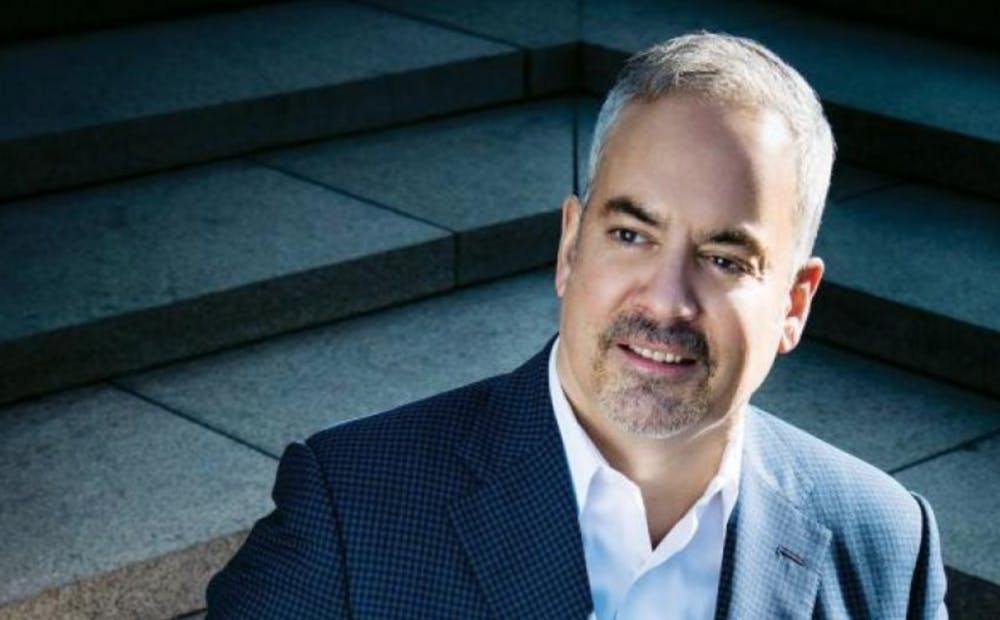Saying all of us benefit from immigration does not cut it, according to University politics professor Stephen Macedo. He presented the political theories behind why policy makers and social scientists should think more in distributive terms rather than in aggregate terms in his lecture titled “Immigration, Globalization, and Social Justice: Is There a Tradeoff?” This idea involves seeing the relationship between policy and effect through the eyes of individuals rather than through the collective whole, as the latter tends to leave people behind.
In light of current discussion on U.S. immigration policy, Macedo highlighted the concerns about the impact of immigration on the bottom 20–25 percent of Americans, pointing out the need for politicians and others to understand immigration and its effects more from the point of view of those who will not benefit from immigration.
According to Macedo, concerns about the negative impact of immigration into the United States on the bottom 20–25 percent of Americans trace back to the profile of migrants entering into the United States. These migrants are relatively poor and have lower levels of education than, in his example, those who enter Canada, which strongly emphasizes skill-based immigration.
Macedo introduced possible ways to see how migration hurts those at the bottom, including Robert Putnam’s article entitled “E Pluribus Unum,” which argues that increasing rates of ethnic and racial diversity decreases social trust and public goods provisions and John Skrentny’s concept of “racial realism” as introduced in his book “After Civil Rights.” Macedo described racial realism as “racial stereotyping that is common among employers at low-wage jobs like construction sites” which aims “to exploit the vulnerability of migrants and undocumented workers who may be willing to work harder and under harsher conditions.”
Macedo expressed his dissatisfaction with Democrats and progressives who, in his opinion, should have had much more to say about these concerns or could “at least include them in the agenda.”
He frequently referenced John Rawls, an U.S. moral and political philosopher who is best known for the defense of egalitarian liberalism. Macedo used Rawls’s political theories to explain that within modern states, the basic structure of society involves citizens in making the laws and institutions that shape their life choices. Within this framework, some citizens do better than others, and in the aggregate sense, all seems fine, but Macedo argued that citizens are responsible for those fellow citizens who fare relatively worse, be it in education, income, or health. This concept is what he called “the political community as a morally significant special relationship.”
“We have to redistribute considerably,” Macedo said. “Lower the average well-being but distribute it more fairly.” This, he argued, will give priority to the people at the bottom, as the framework in which they live in “must be fair from their point of view” also. Macedo stated the country has not been fair. Equality of opportunity, equality of basic liberties, and the difference principle, wherein the most benefit shall be given to the least advantaged members of society, are the ideal guiding principles that Macedo said he wishes this country could better meet. He emphasized a rejection of utilitarianism, saying, “It’s not fair to say to them, ‘you’ll do worse so that others can do better.’”
Macedo agreed that immigration into the United States does have “a net positive effect on the U.S.” and expressed support for amnesty and a path to citizenship for the 11 million undocumented immigrants residing in the United States, more than 80 percent of whom have already been in the country for over five years.

The repeal of Deferred Action for Childhood Arrivals and no amnesty for 11 million is “appalling,” and the border wall is “absurd” to Macedo, as he said citizens should be obligated to “enter into a relationship with new migrants.” Thus, these issues should be nonnegotiable. Whether the United States should curtail extended family migration policy, introduce more skill-based immigration, or simply reduce the total number of immigrants allowed into the country is, according to Macedo, a good topic for further discussion in the lawmaking realm. Though the issues pose a very difficult series of questions to tackle, he said he hopes for a discussion no longer centered primarily on the aggregate or collective whole point of view.
Macedo said there is “no clear, easy answer” for the issue of immigration and stated that he can provide only questions to ponder and concerns to account for but not actual policy proposals for lawmakers.
Stephen Macedo is the Laurance S. Rockefeller Professor of Politics at the University and the former Director of the University Center of Human Values. The lecture was part of the Migration and Human Values Lecture Series, which is sponsored by PIIRS Research Community and by the University Center for Human Values. The lecture took place in Simpson International Building A71 on Wednesday at 4:30 pm.









